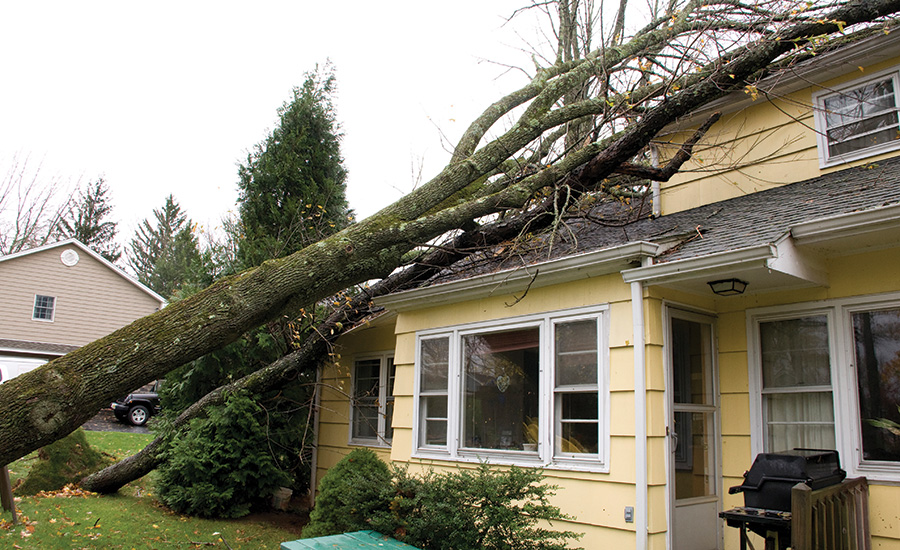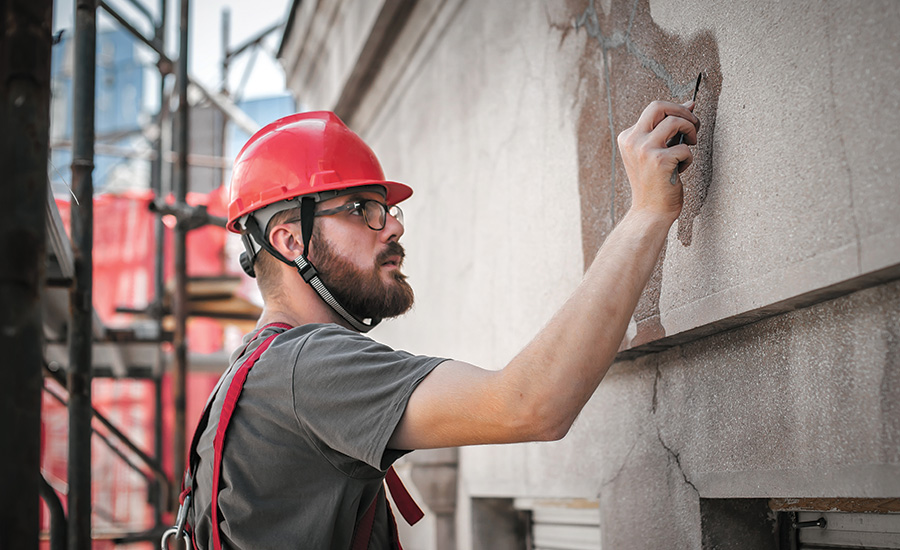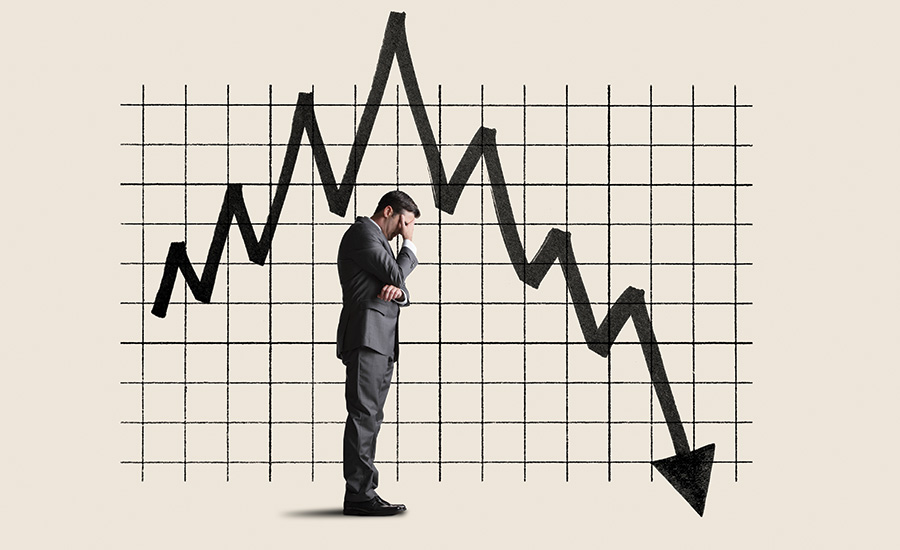Many restoration companies in the U.S. have suffered because of the COVID-19 pandemic. Now, more than ever, restoration company owners are having to reassess how they run their businesses and how they develop organizational resilience moving forward.
When you have organizational resilience, you’ll be able to anticipate and therefore adapt to changes that would otherwise put a serious dent in your company or lead to your company’s demise. It’s what makes a restoration company strong and able to bounce back or even flourish during hard economic times.
Characteristics of a Recession-Resistant Company
According to Investopedia, recession-resistant companies have at least one of the following characteristics:
- Provides critical repair services
- Sells consumer essentials
- Serves customers insulated from downturns
- Provides mandated products or services
- Sells proprietary or specialized products
The restoration industry falls in many of these characteristics, but only if certain criteria are met.
Why the Restoration Industry is Somewhat Recession-Proof
There’s some good news and some bad news when it comes to the topic of recession-proofing your restoration business. If you have an effective organizational resilience strategy, as we will outline in this article, you’ll be able to protect your company.
First, let’s look at the good news because the restoration industry certainly has a lot going for it when it comes to eluding recessions.

Natural Disasters Are on the Rise
In the past few years, there has been a rise in the number of natural disasters. According to a recent CNBC article, from 2016 to 2018, there was an average of 15 billion-dollar disasters every year. To contrast, from 1980-2018, that average was 6.2 events per year.
Just think about all of the times you’ve heard about the following recently:
- Hurricanes
- Droughts
- Tropical storms
- Heat waves
- Earthquakes
- Wildfires
- Floods
- Snowstorms
- Tornadoes
With all of this happening, there seems to always be some type of extreme weather that is wreaking havoc and damaging homes and buildings. Although that’s not a good thing, it has led to a boom in the restoration industry.
And many experts expect it to worsen moving forward, putting even more natural disasters in our midst.

Water Damage is Extremely Common
No matter where you go, water damage exists. In fact, it is the second most filed insurance claim in America.
- Leaking pipes
- Tree roots
- Pipe bursts
- Frozen pipes
- Clogged pipes
- Lose hoses or pipe joints
- Broken garbage disposals
- Water heater failures
- Rusty old plumbing
- Flooding issues
Water damage is the most recession-proof of all restoration services because it happens all the time regardless of what is going on in the economy.
In the case of the COVID-19 pandemic, for instance, more people have been working from home while sheltering-in-place; therefore, home plumbing has been over-worked, leading to increases in water damage.
People Allocate Their Money to Repairs During Recessions
Sometimes restoration companies have organizational resilience because of how people allocate their spending during hard times.
When a recession hits, people tend to repair things when they break down instead of replacing them with something new. As a result, restoration companies can see a boost in sales and find themselves busier than ever.

Some Restoration Services Are Mandatory
There are certain restoration services, such as commercial cleaning that is required by law so that all work areas can be kept clean. This type of restoration work is not considered a luxury that companies can do without unless they are going to do it themselves.
Unfortunately, this certainly wouldn’t have helped cleaning businesses during this pandemic since most businesses were shut down.
Why Are Some Restoration Businesses Suffering?
The restoration industry proved to be recession-resistant during the recession that occurred from 2008-2011. Many restoration companies actually grew during those years. On the other hand, one could argue that the construction business was hit the hardest.
So, where’s the discrepancy?
Although there are many aspects about the restoration industry that makes it recession-resistant, there are certainly other parts that can make it one of the worst industries to be in during a recession. It really depends on the organizational resilience your company has built up.
Here’s the main key…offering the right services is critical to your success!
Businesses who have a mix of services that are too heavy on non-emergency-related restoration services (mold remediation, cleaning, construction) verses emergency services (water damage, biohazard) will struggle during a recession.
Emergency Damage Repair = Recession-Proof
Emergency services, such as water damage, keep restoration businesses more balanced during recessions and economic downturns because there simply isn’t an option to put these services off.
For example, homeowners and building owners MUST address a flood, regardless of what is happening in the economy.
Damage repair is actually the only construction service that is recession-proof.
Non-Emergency Restoration Services = Not Recession-Proof
The restoration companies whose revenues are heavier in the areas of mold remediation and construction are the ones who take the biggest hit during a recession because remodeling a kitchen or cleaning up mold in a room are often put on the back burner since it is not an emergency.
When these issues happen, homeowners and building owners are more willing to wait to address them until their financial situation is more secure.
Gaining Organizational Resilience for Your Restoration Company
History tells us that there will be more recessions and issues that lead to economic downturns in America’s future.
So, what can you do to make sure your business is more recession-proof?
If there’s one thing this pandemic has taught us, it’s that you never know what is going to happen. Therefore, you need to prepare for the unknown in advance.
To obtain organizational resilience, there are several important tips that can help…
1. Keep a Pulse on Emerging Threats
The ability to identify emerging threats and their impact on all aspects of the restoration business is an absolute must if you want to have organizational resilience.
That means determining what external factors could negatively impact your business, but how do you do that when you “don’t know what you don’t know”?
The easiest way is to perform market research and make a list of the potential threats that come up as you do. You can use the brainstorming questions in this article for assistance.
2. Have the Right Amount of Emergency-Related Services
As we’ve mentioned, it’s essential that you have a high amount of emergency-related services in your mix since people generally don’t spend money on non-emergency restoration services during down times but things like water damage are mandatory.
The easiest way to accomplish this is to make sure you have a viable, sustained approach to getting residential water damage work. That means a multi-channel marketing approach that’s heavy on marketing to referring parties (like plumbers and insurance agents), having a strong web presence, and equally as important, solid internal operations and systems to be able to take on more work.
Remember, if you wait until the next threat happens to put this in place, it will be too late.

3. Develop Relationships That Bring in Referrals
Restoration industry marketing doesn’t lend itself well to tactics like direct-to-consumer mail to homeowners and other types of marketing that aren’t delivered at the time when people need the repairs.
If you receive a postcard about water damage, for example, but you don’t have a water damage emergency, that postcard is going in the trash. You might end up with a water damage in the futures, but that postcard is long forgotten at that point.
That’s why referrals are the name of the game for restoration businesses and developing relationships with companies that can send you a steady stream of referrals is part of developing organizational resilience.
Most homeowners seek out emergency services via a call to their insurance agent or plumber. According to insurance industry data, the average home only floods once every 50+ years. Many homeowners will never experience a water damage emergency, so marketing directly to them is inefficient at best. That’s why you need to develop relationships with the businesses homeowner’s call first so that you can gain their referrals.
Obviously, those relationships need to be in place BEFORE the downturn hits!
4. Maintain a Strong Company Objective
Organizational resilience is never achieved without a clear company objective and purpose that is supported by the staff. If you were to ask each of your employees what the company vision and mission is, would they all answer the same way?
You can’t expect to “roll with the punches” and weather the recession storm. Instead, you need to strategize and plan for what might come up beforehand so that you can easily adapt when the stuff hits the fan.

5. Get All the Right People on the Bus
Everyone on your staff needs to be committed to working as a unified team. Resilience requires coherence and cooperation. Everyone needs to be on board with your vision, mission and company values or it will simply fall apart.
One of the best ways to do this is to get your employees involved in shaping the culture of your company.
We often hear that it’s easier to get a child to try a new food if they take part in making it. On the same note, when people are a part of the organizational resilience process, they will want to see it through.
6. Demonstrate Strong Leadership
Unless you are offering your staff clear direction through your leadership, it’s impossible to have a unified team. The leaders in your company need to have clarity of focus and develop procedures that allow it to trickle down to every staff member. Strong leaders ensure their people have the systems, tools, and knowledge to do their job effectively and efficiently. This is never more important than when your organizational resilience is put to the test.
Final Thoughts
Organizational resilience is rarely something that just falls in a company’s lap. The vast majority of restoration companies will need to strategize to make it happen. With the tips we’ve provided, you’ll be well on your way to maintaining a thriving business throughout the next economic downturn comes our way.

